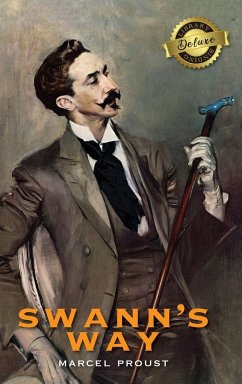The Narrator is a sensitive young man who wishes to become a writer, whose identity is kept vague. As a child, his anxiety at leaving his mother at night and his attempts to force her to come and kiss him goodnight, culminates in a spectacular success, when his father suggests that his mother stay the night with him. The Narrator's anxiety leads to manipulation, much like the manipulation employed by his invalid aunt Leonie and all the lovers in the entire book, who use the same methods of petty tyranny to manipulate and possess their loved ones. Swann's Way is considered to be Marcel Proust's most prominent work, known both for its length and its theme of involuntary memory, the most famous example being the "episode of the madeleine" which occurs early in the first volume. While there is an array of symbolism in the work, it is rarely defined through explicit "keys" leading to moral, romantic or philosophical ideas. The significance of what is happening is often placed within the memory or in the inner contemplation of what is described. This focus on the relationship between experience, memory and writing and the radical de-emphasizing of the outward plot, have become staples of the modern novel but were almost unheard of in 1913.








